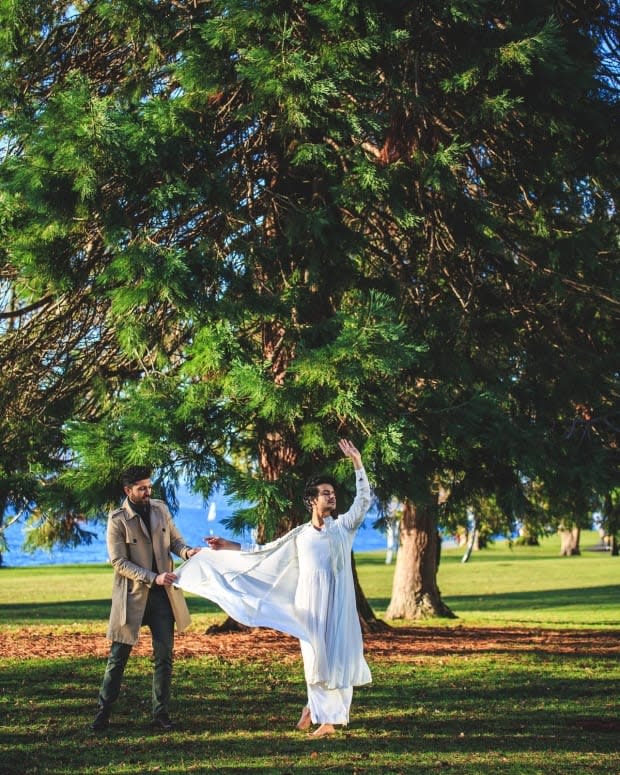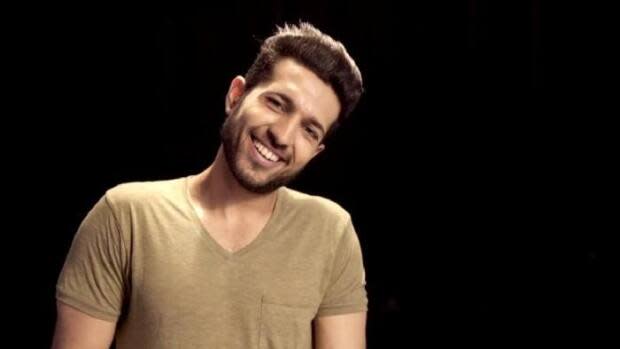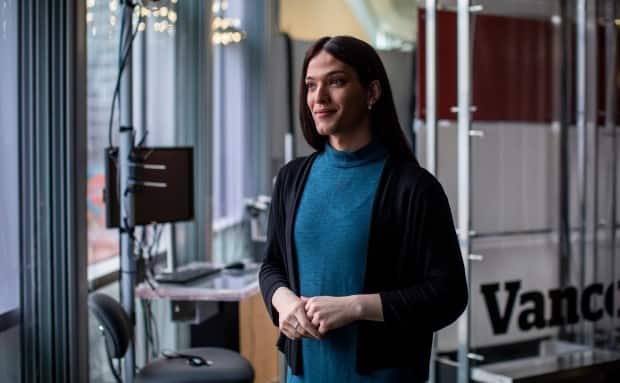Vancouver seen as a safe haven for LGBTQ people from around the world

From July 26-30, tune in to CBC Radio One's The Early Edition at 7:10 a.m. for All Out Vancouver — a new special series produced by CBC's Kiran Singh that explores how the city of Vancouver supports its LGBTQ residents, many of whom seek refuge in the city because of its reputation as a safe haven.
People from around the world have immigrated to Vancouver for the quality of life and scenic beauty for years. But for some members of the LGBTQ community, Vancouver is also where they've found a chance at a dignified life.
Members of this community have been shunned in their birthplaces for wanting to express their authentic selves and seeking marriage equality. While Canada provides them with a place where they can marry their same-sex partner, Vancouver can provide them with a community that not only accepts them, but celebrates them.
The option to have a family
Saattvic, who goes by his first name alone, is a gay man who moved to Vancouver from India to be with his partner in 2020.

"We don't have the right to marry, and simple things like having a family, marrying the person you love, settling down. Things that most people just take for granted," said Saattvic, explaining that these options aren't available to him in India.
He is currently a petitioner in the High Court of Delhi seeking marriage equality in India.
India's Supreme Court legalized consensual gay sex in 2018, changing a law that previously categorized it as an "unnatural offence." But Saattvic calls that move 'step zero' in the gay rights movement in that country.
Walking down the street can be dangerous
Norma Lize is a transgender activist who moved to Vancouver from Lebanon as a refugee in 2018.

"Being a trans person, a trans activist in the Middle East, I was putting my life at risk every time I would go out ... every time I would post something on Facebook," said Lize, adding she felt unsafe walking down the street.
Lize says she decided to move to Vancouver as a refugee so that she could help other trans women. "To provide safety for someone else, I need to support myself."
Not a new phenomenon
Mary-Ev Anderson identifies as a lesbian and she moved to Vancouver in 1985.
"When I was in Ottawa, I was terrified of being fired, of being evicted.... I really lived in fear," said Anderson.

She recalls "a mass exodus of lesbians from Ottawa" around 1985 because they felt a deeper sense of community and safety here.
By 1993, Forbidden Love: The Unashamed Stories of Lesbian Lives' was showing in regular cinemas, something the lesbian community celebrated at the time.
"Us seeing ourselves on the screen was astonishing," Anderson recalled.
No place is perfect
Lize, who lives in the heart of the West End, says she experienced racism after moving to Vancouver.
"I was on the dating apps when I moved here, I felt that the community here is very white, white-oriented. If you are not as white as everyone else, you will always be 'othered,' " Lize said.
That meant she was perceived as someone who didn't understand Canadian culture, someone who was not born here or someone to be exoticised, she says.
"We left our country for a reason, so let's not bring the hard times we went through to this city."
She's hoping Vancouver can become even more inclusive and more tolerant of diversity.

 Yahoo Movies
Yahoo Movies 